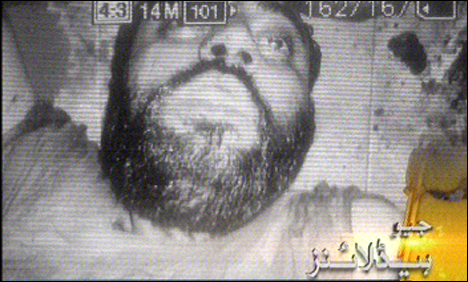
Al Qaeda has announced the death of one of its propagandists who was killed during a raid last month by Pakistani Rangers in the city of Karachi.
The death of Abd al Moeed bin Abd al Salam, or Moeed, who served as “one of the leaders of the Global Islamic Media Front [GIMF] and a knight from the knights of the Jihadi media and the Jihadi forums,” was announced by GIMF in a martyrdom statement that was released on jihadist forums on Dec. 8 and was translated by the SITE Intelligence Group. The Global Islamic Media Front is one of several propaganda outlets for al Qaeda.
Moeed, a Yemeni citizen who is also known as Saeed Abdul Salam, Moeed Abdul Salam al Yemeni, and Abu Umar, was killed during a raid on his apartment in the Gulistan-e-Jauhar district in the Pakistani city of Karachi on Nov. 18. Moeed is said to have killed himself during the raid by detonating a hand grenade. He is said to have possessed a US passport at the time of his death.
The martyrdom statement claimed that Moeed “grew up in a rich family, studying in the best schools and universities,” and “worked as a teacher in global companies with high salaries in Yemen and America, such that he even obtained American citizenship for his parents.”
Moeed “committed himself to [the] Jihadi path” in 1998 “a short while before the formation of the Global Islamic Front for Jihad against the Jews and the Christians … through the joining of the Islamic Jihad Group in Egypt with Qaedat al-Jihad.” The Global Islamic Front for Jihad against the Jews and the Christians is the name that Osama bin Laden used for al Qaeda in the February 1998 Fatwa that declared war on the US.
After al Qaeda’s attack on the US on Sept. 11, 2001, Moeed “emigrated from America to the Land of al Haramain,” or Saudi Arabia, and then “moved among several countries to support the Mujahideen and offer different material and media services for them.”
He later moved to Pakistan, where he married a Pakistani woman, and was assigned to work for al Qaeda’s propaganda arm. He was assigned to GIMF’s “Language and Translation Department” and helped to create the Qadisiya Foundation for Media “to translate media material into the languages of the Indian subcontinent.”
GIMF said his job was to “bring the voice of the Mujahideen generally and the Mujahideen of the Taliban of Pakistan as well as the Mujahideen of al-Qaeda specifically in several languages. So he created local media groups and Jihadi websites and forums in Asian languages, especially Urdu, English, Bengali, and Pashto.”
At the time of Moeed’s death, a US intelligence official who tracks al Qaeda’s network in Pakistan told The Long War Journal that he was “a mid-level cog in al Qaeda’s Pakistan machine” and one of many operatives based in Karachi. Moeed was not as significant as Younis al Mauritani, a senior member of al Qaeda’s external operations council who was detained in September by the Frontier Corps in Quetta, or Abu Hafs al Shahri, al Qaeda’s operations chief for Pakistan who was killed in September in a US drone strike in North Waziristan, the official said.
Pakistan’s Federal Investigation Agency claimed that an investigation into Moeed “did not find any link between the suspect and any local or international terrorist outfit and the suspect had no criminal or terrorism record,” according to The Express Tribune.







